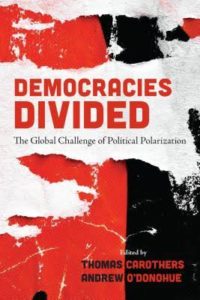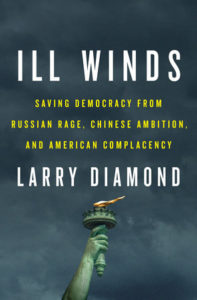 Political polarization is tearing at the seams of democracies around the world—from Brazil, India, and Kenya, to Poland, Turkey, and the United States, Carnegie Endowment scholar Thomas Carothers observes in his new co-edited volume (with Andrew O’Donohue), Democracies Divided: The Global Challenge of Political Polarization.
Political polarization is tearing at the seams of democracies around the world—from Brazil, India, and Kenya, to Poland, Turkey, and the United States, Carnegie Endowment scholar Thomas Carothers observes in his new co-edited volume (with Andrew O’Donohue), Democracies Divided: The Global Challenge of Political Polarization.
Democracies Divided identifies and examines the fissures that are dividing societies and the factors bringing polarization to a boil, Brookings adds. In nearly every case under study, political entrepreneurs have exploited and exacerbated long-simmering divisions for their own purposes—in the process undermining the prospects for democratic consensus and productive governance.
 The book’s “lucid and incisive case studies vividly demonstrate the danger posed by intense polarization, and Carothers and O’Donohue urge creative initiatives to bridge political gulfs,” adds Journal of Democracy co-editor Larry Diamond, author of Ill Winds.
The book’s “lucid and incisive case studies vividly demonstrate the danger posed by intense polarization, and Carothers and O’Donohue urge creative initiatives to bridge political gulfs,” adds Journal of Democracy co-editor Larry Diamond, author of Ill Winds.
A forthcoming event at Stanford’s Center on Democracy, Development and the Rule of Law in the Freeman Spogli Institute for International Studies will analyze the global spread of political polarization, drawing on examples from Africa, Asia, Europe, Latin America, the Middle East, and North America. Questions to be addressed include: Why has polarization come to a boil in so many places in recent years? What are its consequences? Once democracies have become deeply divided, what can they do to restore at least some consensus? Is polarization in the United States similar to or different from polarization elsewhere?
October 24, 2019 12:00 PM – 1:30 PM RSVP







